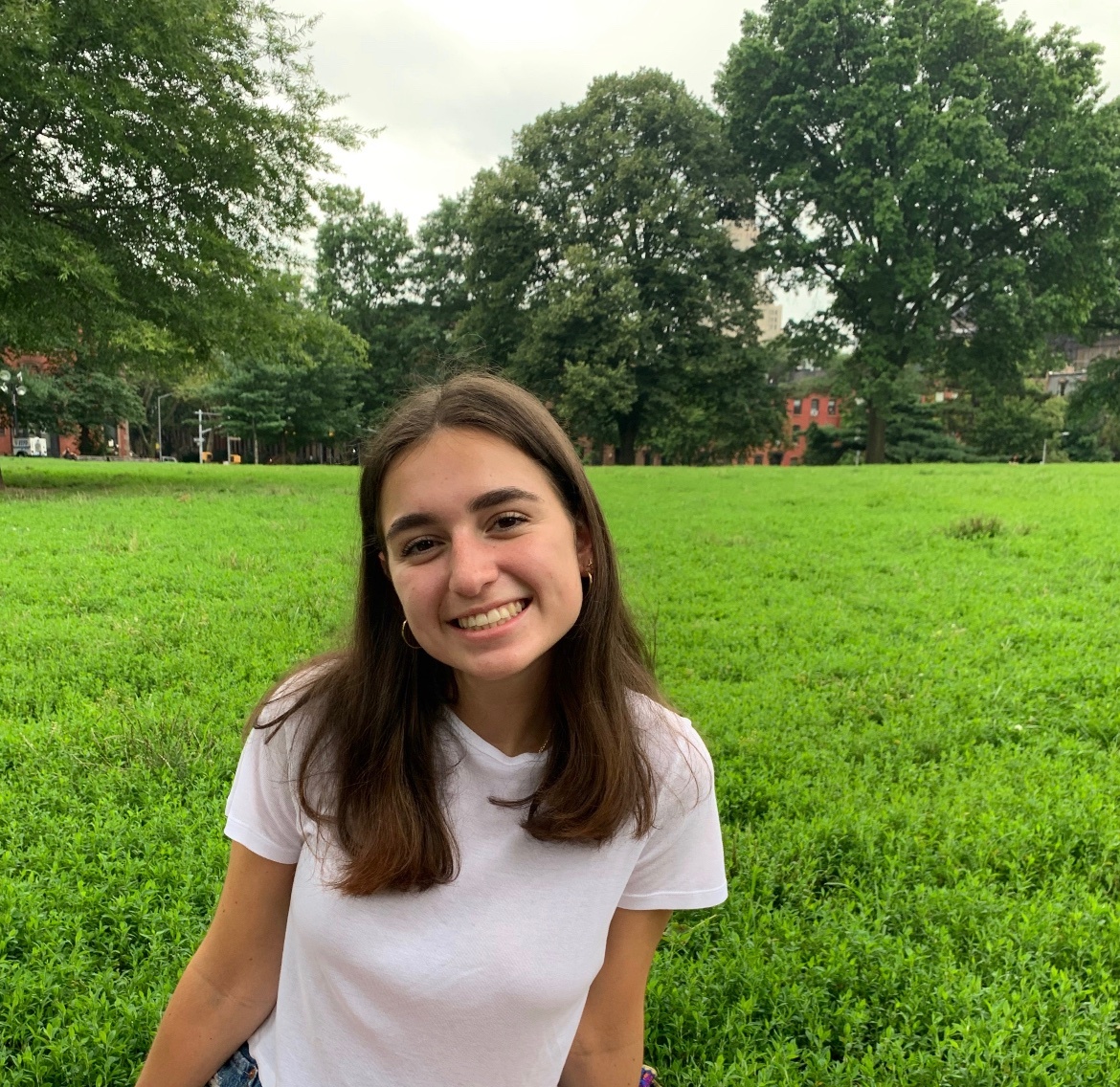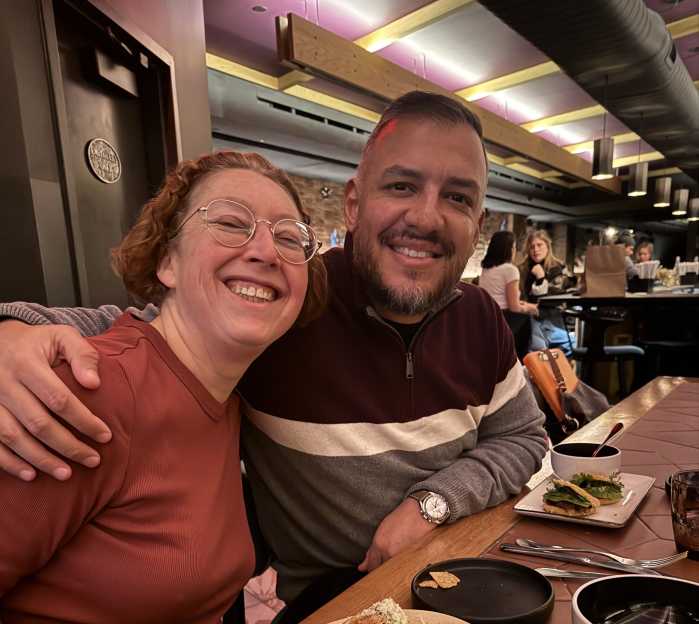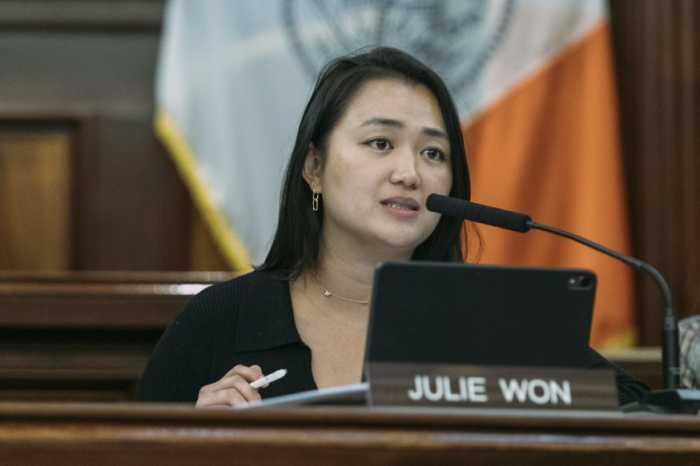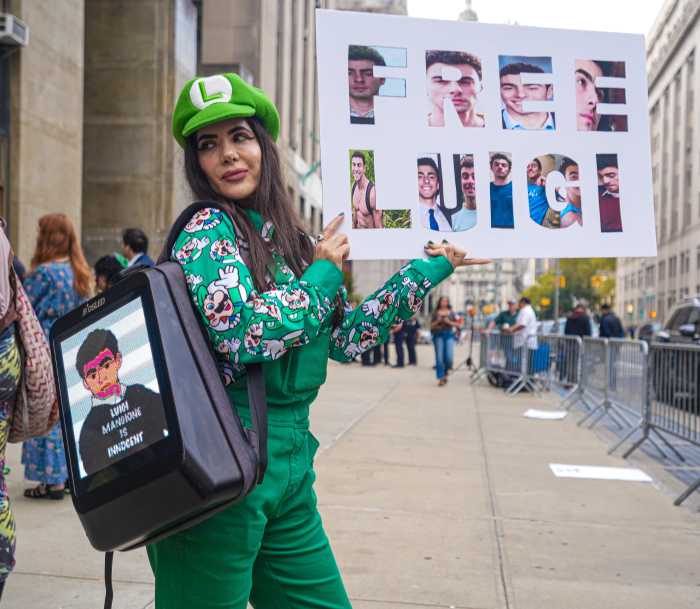Julia Manuali, a 17-year-old Douglaston resident and high school senior at Loyola School in Manhattan, is spearheading the school’s food drive for this year’s “Great Ignatian Challenge” during the Thanksgiving season.
The challenge, which began on Oct. 12 and ends Wednesday, Nov. 25, is a competition between a group of nine Jesuit schools — from New York, New Jersey, Connecticut and Pennsylvania — to collect and donate the most food for underserved communities.
Since the challenge’s inception, participating schools have collected 218 tons of provisions for local food banks and pantries serving needy families. Last year alone, the challenge collected 137,632 pounds of food.
For the past five years, Loyola has won the challenge. This year, Manuali is one of eight student leaders encouraging her classmates to participate in helping to feed families who are struggling with food insecurity, she said.
“It’s going really well this year. We’ve presented PowerPoints at virtual assemblies to get the message across to help people in New York City have enough food for the holidays,” Manuali said.
According to Manuali, so far they’ve collected around 10,000 pounds of food, which will be donated to City Harvest.
The students are virtually donating through Give Healthy, an organization that enables people to donate fresh fruits, vegetables and other healthy food.
“It’s a more healthy approach to donating mostly boxes of fresh produce such as boxes of mixed fruits, veggies and potatoes,” Manuali said.
As she has been involved in community service and trips at Loyola, Manuali said she has always loved the spirit of the Great Ignatian Challenge.
“I knew from freshman and sophomore year that I wanted to be a leader of the challenge this year, just to be able to help people spread awareness of food insecurity, especially right now during this time,” Manuali said.
For this year’s competition, Fordham Prep alum, Jim Rowen, is once again personally pledging $250,000 to support the participating schools’ efforts. The nine schools are competing for tiered awards based on criteria identified by Rowen.
A total of $170K is divided among all schools by the amount collected per student. The first place winner will receive $35K; second place will receive $25K; third place will receive $20K; and six runner-ups will each receive $15K, a total of $90K.
The school that attracts the most outside attention for the Great Ignatian Challenge will receive $30K.
The school that collects the most absolute amount of poundage via online food donations, recognizing the importance of online giving during the pandemic will receive $30K.
And the school that is most creative in collecting food donations, above and beyond what has typically been done collecting food for those in need will receive $20K.
If Loyola wins this year’s challenge, Manuali said it would reinforce a sense of community.
“Loyola is a small school and we really come together every year to donate as much as we can,” Manuali said. “It would also show New Yorkers in general that people really do care — especially teenagers, wanting to make a difference.”
While in the prior years the monies have been allocated to supporting financial assistance programs, this year the awards will be applied toward offsetting COVID-19 related expenses incurred by each of the schools.
Inspired by the commitment to social justice and service to the community that lies at the heart of Jesuit education, Rowen has generously donated more than $1,100,000 toward the Great Ignatian Challenge competitions over the last five years.
Rowan’s desire is to open the competition up to even more schools next year.



































